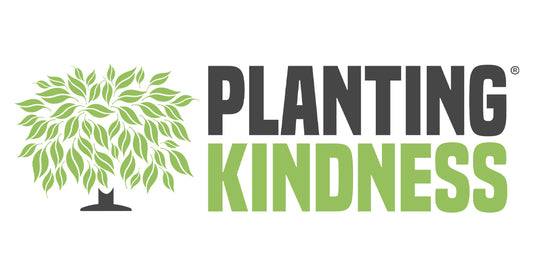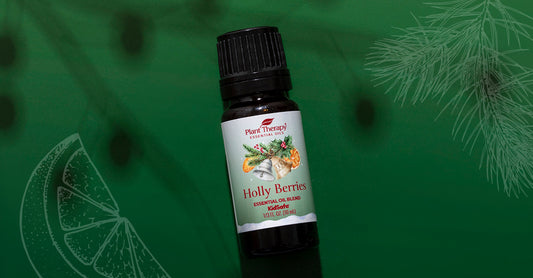I know, I know… now I’ve gone and used the “M” word. Wait! Don’t run.
Still think that meditation is “too woo woo” and not for you?
What if I told you that by simply calming the mind you could reduce nervous tension and worry, slow the aging process, increase your ability to think, reduce the process that leads to serious disease and chronic conditions, and even change the way your genes govern your health?
Ok, so then you think it is too hard and takes too much time?
What if I told you that you can actually create a positive impact on your wellbeing, down to the genetic level, in just 20 minutes day? And, even small single sessions yield benefits!
And, naturally, aromatherapy pairs perfectly with the practice of meditation so I’ve included some blends you may find supportive.
Still with me?
Let’s start by breaking down meditation’s potentially amazing and effective benefits within your own power. Then, we’ll break down the “how to” into seven simple steps to get you started with your own aromatic meditation.
Previously, in Food for Thought we discussed how the mind, body and spirit are connected. Often, our lack of wellbeing starts in the mind and then im pacts the body.
pacts the body.
Meditation creates the oasis of overall optimal wellness starting with a calm mind that ripples outward throughout our whole being.
While Eastern traditions of medicine have historically used mindfulness and meditation as part of the overall holistic approach to wellness, researchers across the nation’s major academic research institutions have been busy in more recent years studying the practice to explain why and how it works.
Meditation’s Effects on the Mind:
- Helps preserve the aging brain, as documented by a study at UCLA
- Helps to quiet an over-active and wandering mind, often associated with worry, according to Yale University
- It can be as effective as medication for anxiety and depression, according to research at Johns Hopkins University.
- May increase the volume of the brain governing learning, memory and emotions and decrease the volume of the brain responsible for fear, anxiety and stress, according to Harvard University.
- It can improve focus, concentration, attention and memory retention, according to scientists at UC Santa Barbara.
- It can be effective in supporting those recovering from addictions, including smoking according the American Lung Association.
Meditation’s Effects on the Body:
We know from Take a Breath and Cool Your Jets, that chronic stress leads to chronic inflammation and chronic inflammation can lead to serious and chronic health concerns.
Previous research has shown meditation to be effective in helping to improve health conditions such as cancer, heart disease, diabetes, stroke, depression and Alzheimer’s
Now, scientists at Carnegie Mellon University have shown why. First, they found that meditation is even more effective in reducing inflammation in the body than other relaxation techniques. And, by studying the brain circuitry and blood chemistry, they have been able to link meditation to an improved effect on how the brain manages stress (as an inflammation trigger), leading to reduced inflammation in the body.
Ok, now wait for it …
We know about genetic predispositions to certain conditions that run in families. But, what if our genetic code is not our destiny?
Harvard University researchers found that meditation for 20 minutes a day over an eight-week period can create positive changes down to our genetic level. In fact, meditation actually “turned up the genes that boost immune response, energy metabolism, and insulin secretions, and turned down the genes linked to stress and inflammation.” Even a single session showed a positive result on impacting our health at the genetic level.
So, what is meditation exactly and how do you do it?
Meditation in Seven Simple Steps
While meditation has gone more mainstream in recent years, for many of us it can still seem like a foreign and difficult practice. But, here is the thing. Meditation is not necessarily the achievement of an empty mind, but the practice of calming it. I like this definition I recently came across.
Meditation is simply “cultivating a focused awareness on the present moment.”
We don’t need to retreat to anywhere away from home (although this is always a treat), we don’t need anything fancy, and we don’t need any expensive accessories. All we need is ourselves, our breath, and even some small space in our days. And, of course, aromatherapy is always a wonderful means of support.
And, while a meditation practice is simple, it isn’t always easy, especially at first. So, it is important to be persistent without pushing to be perfect. This just sets us up for frustration and failure.
While there are many, many forms of meditation out there you may wish to explore (guided, visualization, mantras with beads, walking, kinesthetic such as knitting or coloring, etc), we are going to start with one of the most basic practices — simply focusing on the breath. In just a few easy steps, we can learn to quiet the mind and create a healing balance in our whole being in a practice that can be as portable as needed.
Aromatic Meditation in Seven Simple Steps:
- Choose an aromatherapy blend. (see below)
- You can either diffuse or use a personal inhaler.
- Find a quiet place to sit comfortably.
- Note that you can even create calm in the midst of chaos by plugging in soothing music with noise canceling ear buds)
- Gently close your eyes.
- Notice your breath, without trying to control it.
- Breathe through your nose and bring your focus to each inhalation and exhalation like the ebb and flow of gentle waves.
- Choose an option to keep your focus on your breath.
- You can count each breath; or
- You can select a word(s) to repeat with each breath
- (I like to inhale “Calm” and exhale “Peace.”)
- Return your focus to your breath as needed.
- When you find thoughts coming to the surface, simply notice them like clouds floating by (without judgment) and return your attention to your breath and your counting or words.
Aromatherapy can provide an incredible sense of support in meditation, most especially for helping to quiet the mind. One essential oil traditionally associated with meditation that often comes to mind is frankincense carteri. Others you may like include buddha wood, blue cypress, davana, and ho wood.
Here a few of my favorite blends to get you started. If I am home, I like to use the diffuser. But, I can be sitting in an airplane seat, with my noise canceling headphones and personal inhaler (just scale the blends up to 15 drops), and create a calming session for myself that literally lets me tune out what’s around me and tune in to my own internal sanctuary.
Reflect blend
2 drops bergamot
2 drops coriander
2 drops frankincense carteri
For a quieter and more balanced state of mind. Inspired introspection.
Mellow Mind
2 drops ho wood
1 drop blue cypress
1 drop buddha wood
1 drop ginger co2
Grounding. Supports a sense of peace. Helps to calm a busy mind.
Sangria Siesta
2 drops davana
1 drop lime
1 drop lemon
1 drop sweet orange
Soothing, calming, relaxing and quieting to the mind, while uplifting the spirits.
I try to meditate at least 30 minutes a day. More on days where more is needed. But, I started slow. Sometimes I could only do 10 minutes, then I worked my way up to the 20-minute mark given the results from the Harvard study and it seemed like a bite from the apple I could chew.
Eventually, I was ready to make it a habit, so I challenged myself to practice at least 20 minutes a day for 60 days straight. At that point, I found it was something I was able to fit into my daily routine and actually increased my time to 30 minutes. It has become my time to shut down and recharge both my mind and body and if I miss out I do miss it.
The thing to do, is just to give it a try. Remember it is called a practice for a reason. The vision of the guru sitting high on the mountain with an empty mind is not the goal. This is just another step in our healing journey giving us the power to soothe our selves by calming the mind and minding the body.
References:
Walton, Alice G. “7 Ways Meditation Can Actually Change the Brain.” Forbes.com. PHARMA & HEALTHCARE. Forbes 2/09/2015. Web. 02/20/15
Gregoire, Carolyn. “Here’s How Meditation Reduces Inflammation and Prevents Disease.” The Huffington Post. The Huffington Post, 08 Feb. 2016. Web. 22 July 2016.
Gregoire, Carolyn. “Here’s How Meditation Reduces Inflammation and Prevents Disease.” The Huffington Post. The Huffington Post, 08 Feb. 2016. Web. 22 July 2016.
Quinn, Corina. “Reset Your Health.” Yoga Journal June 2014: 22.
Walton, Alice G. “7 Ways Meditation Can Actually Change the Brain.” Forbes.com. PHARMA & HEALTHCARE. Forbes 2/09/2015. Web. 02/20/15









